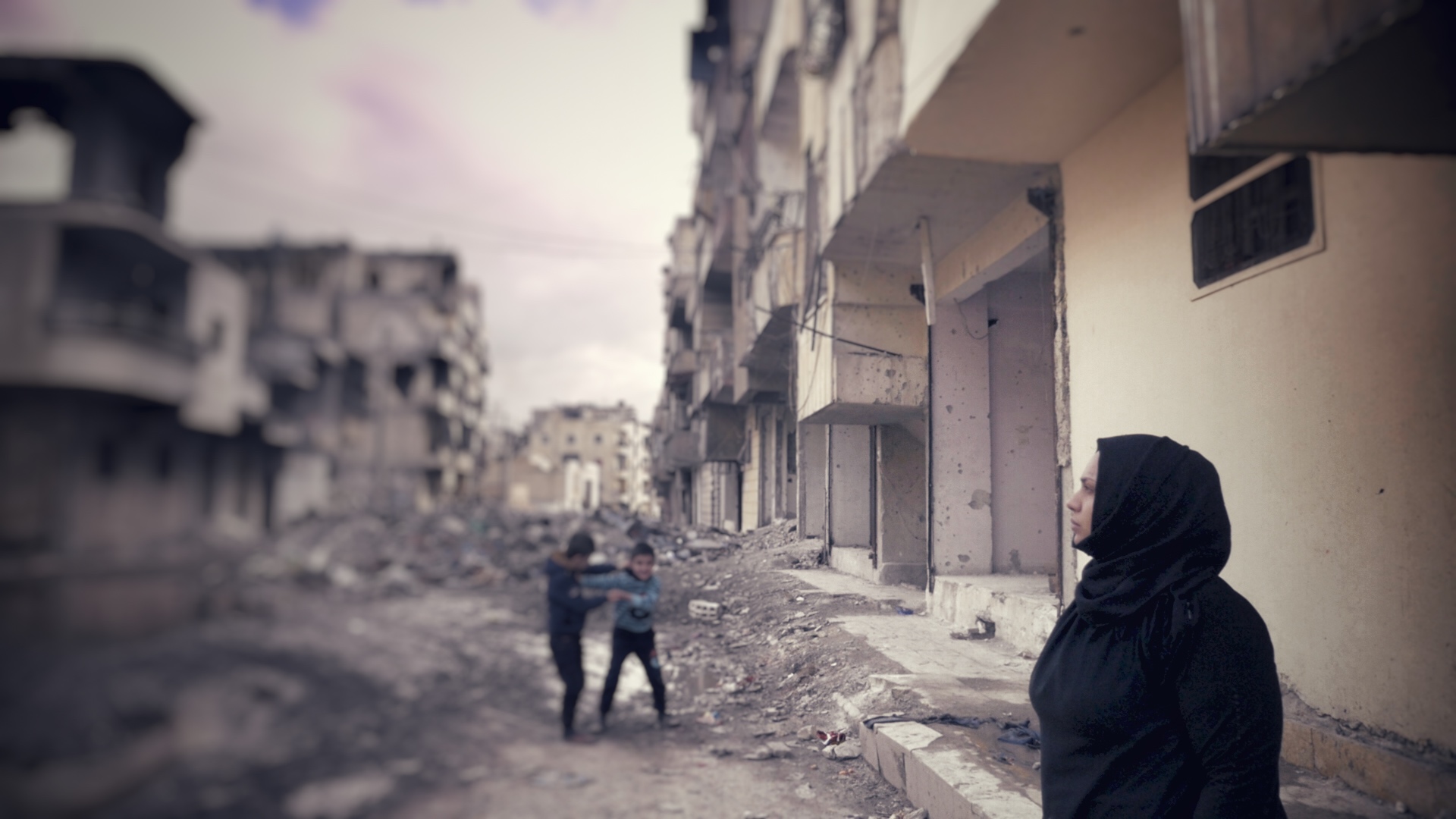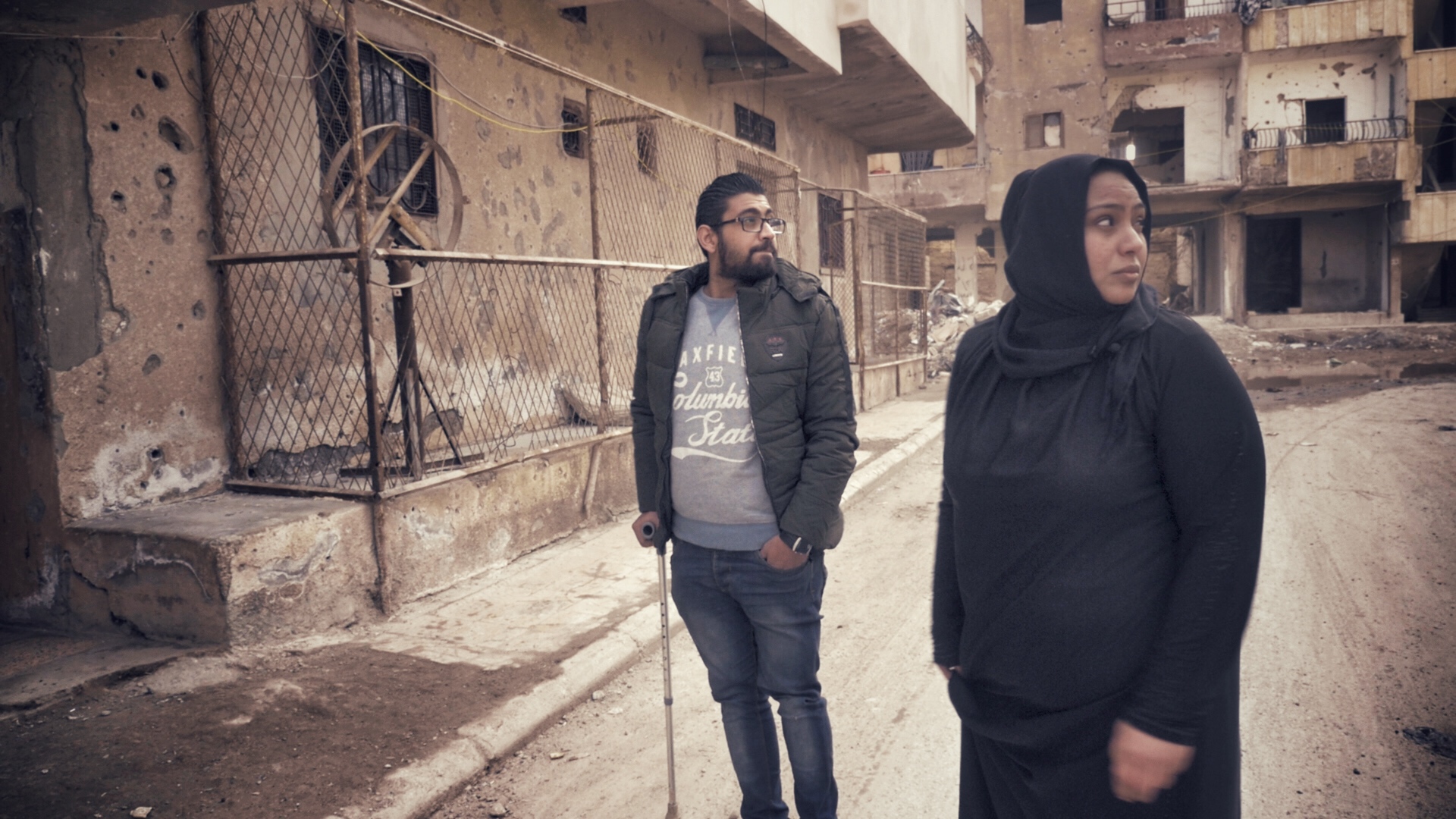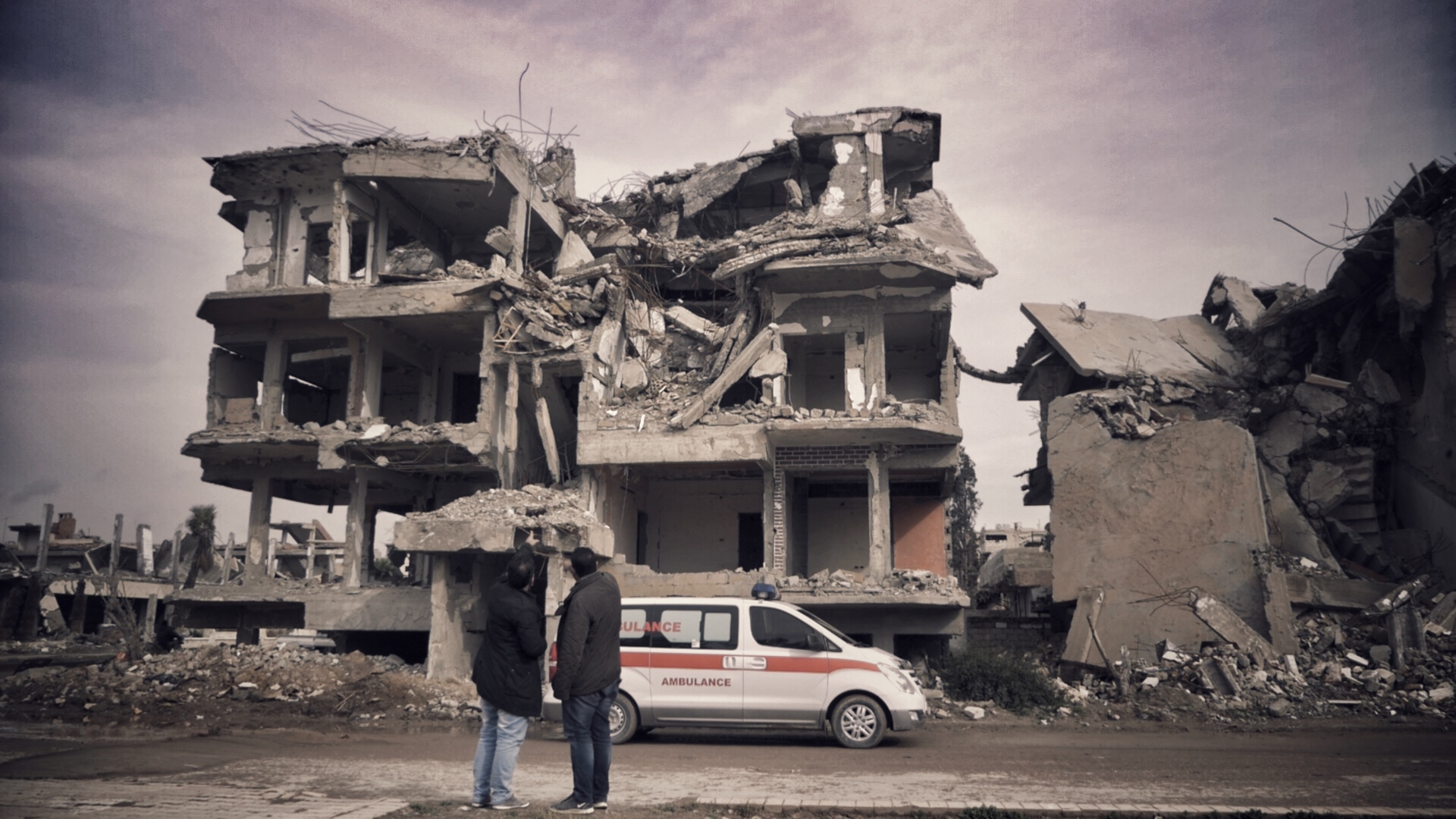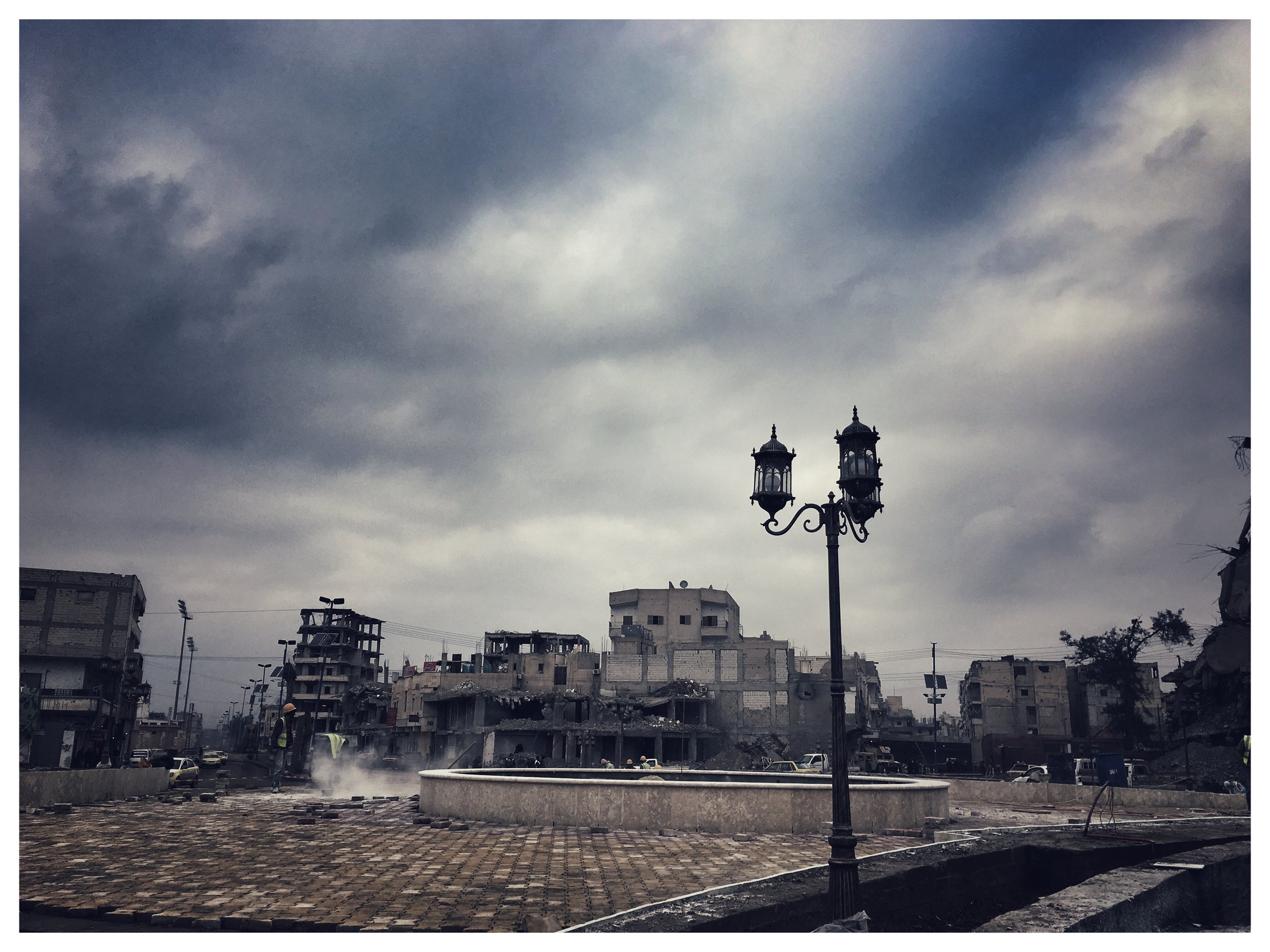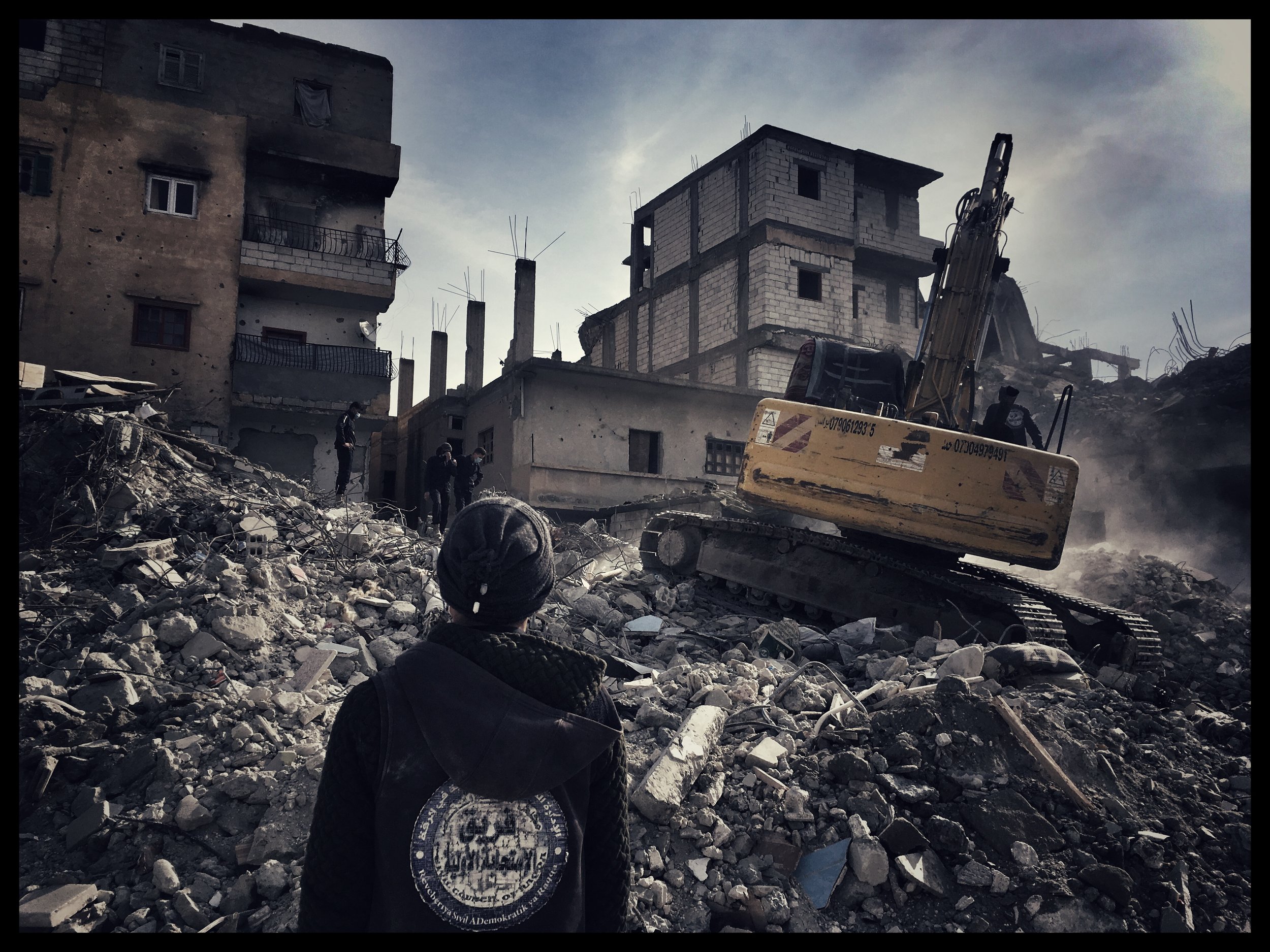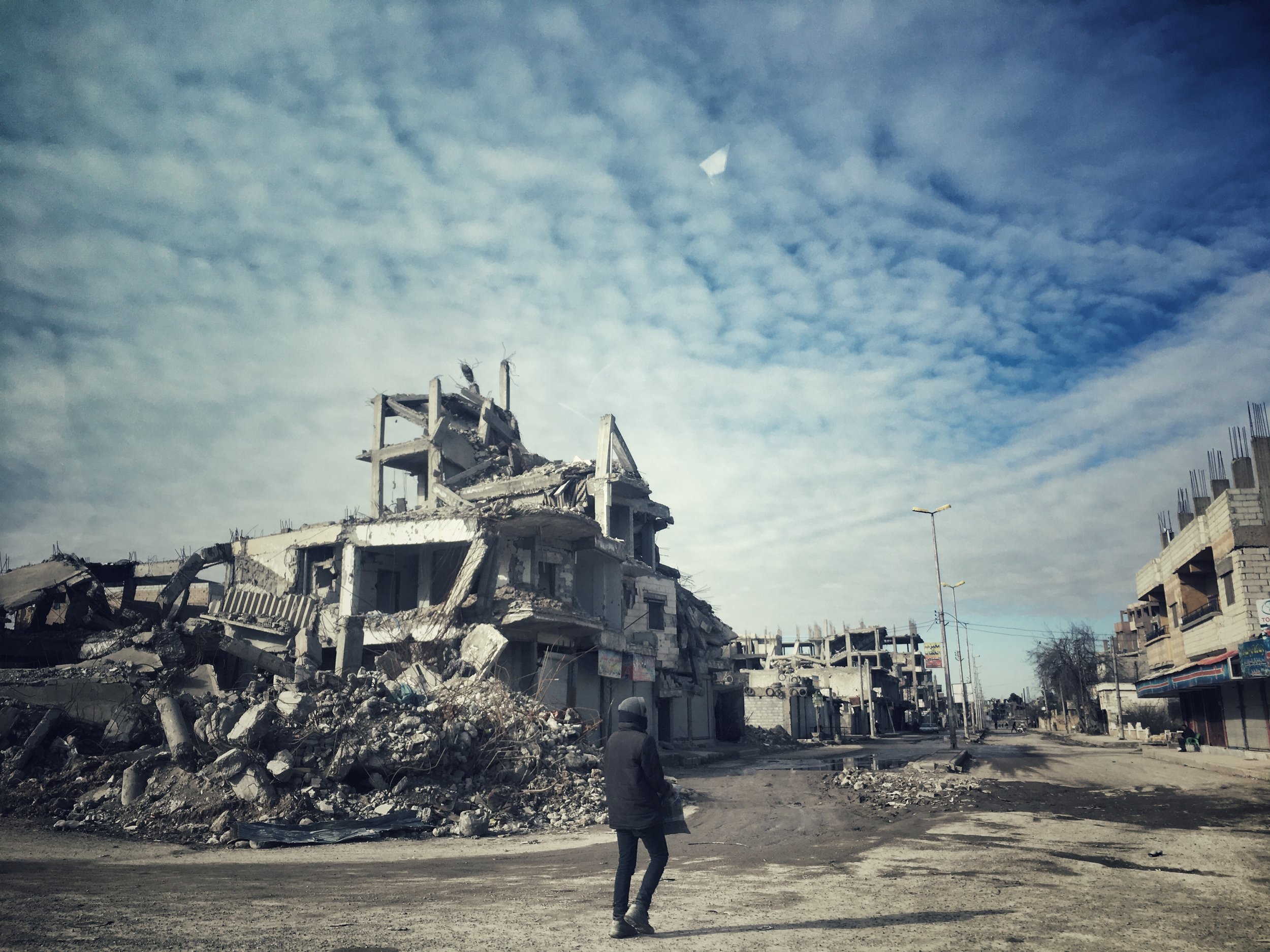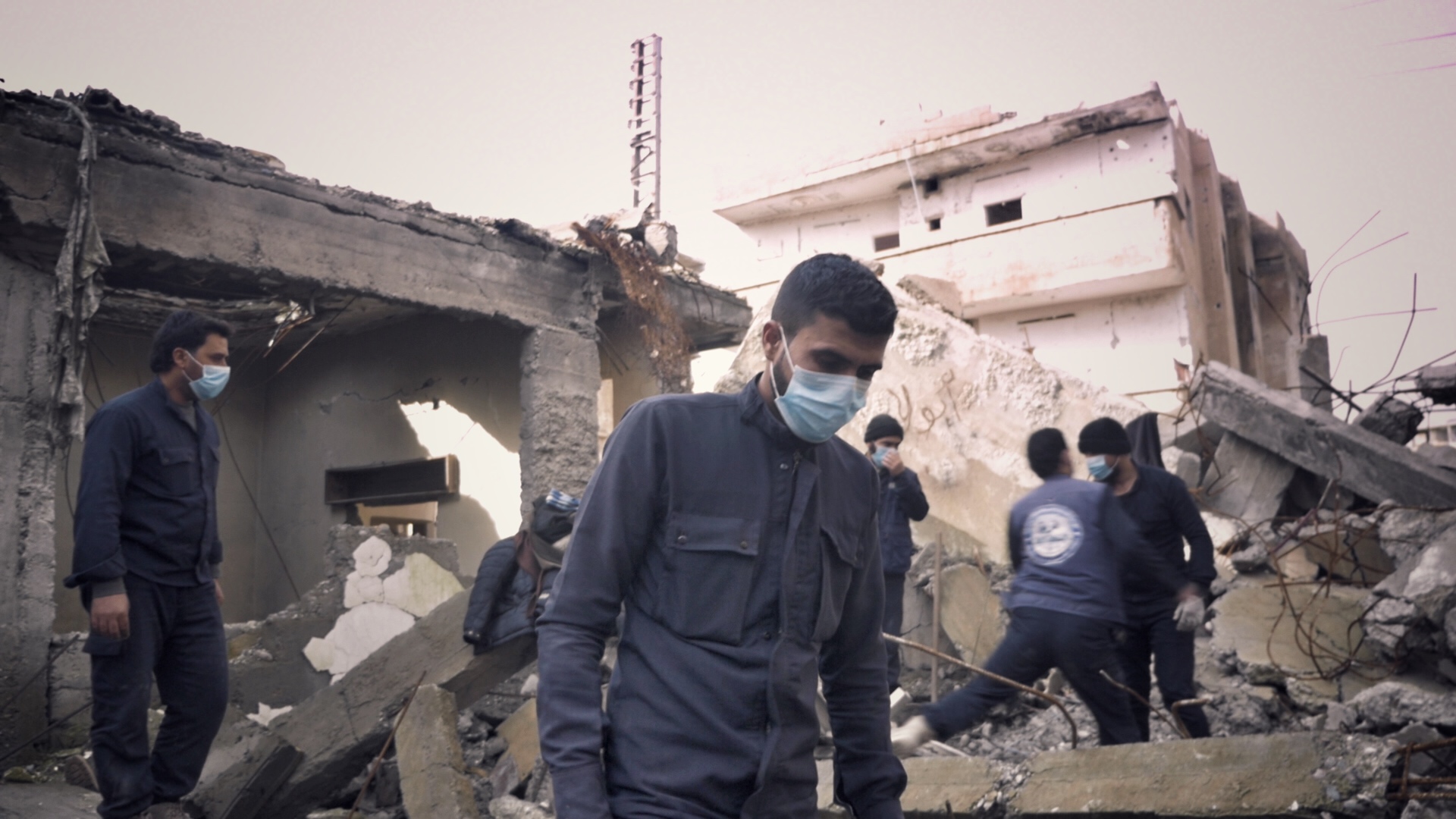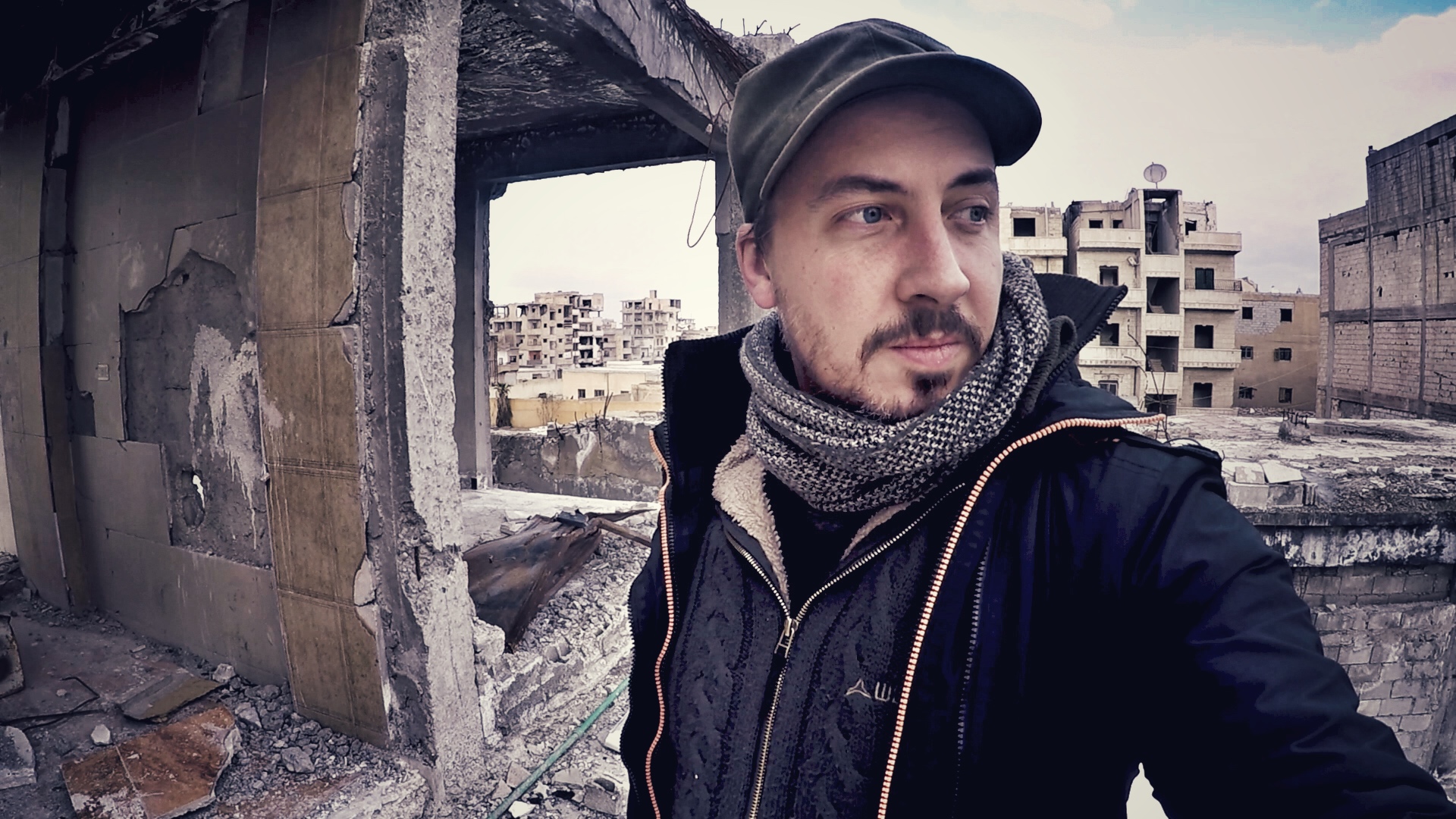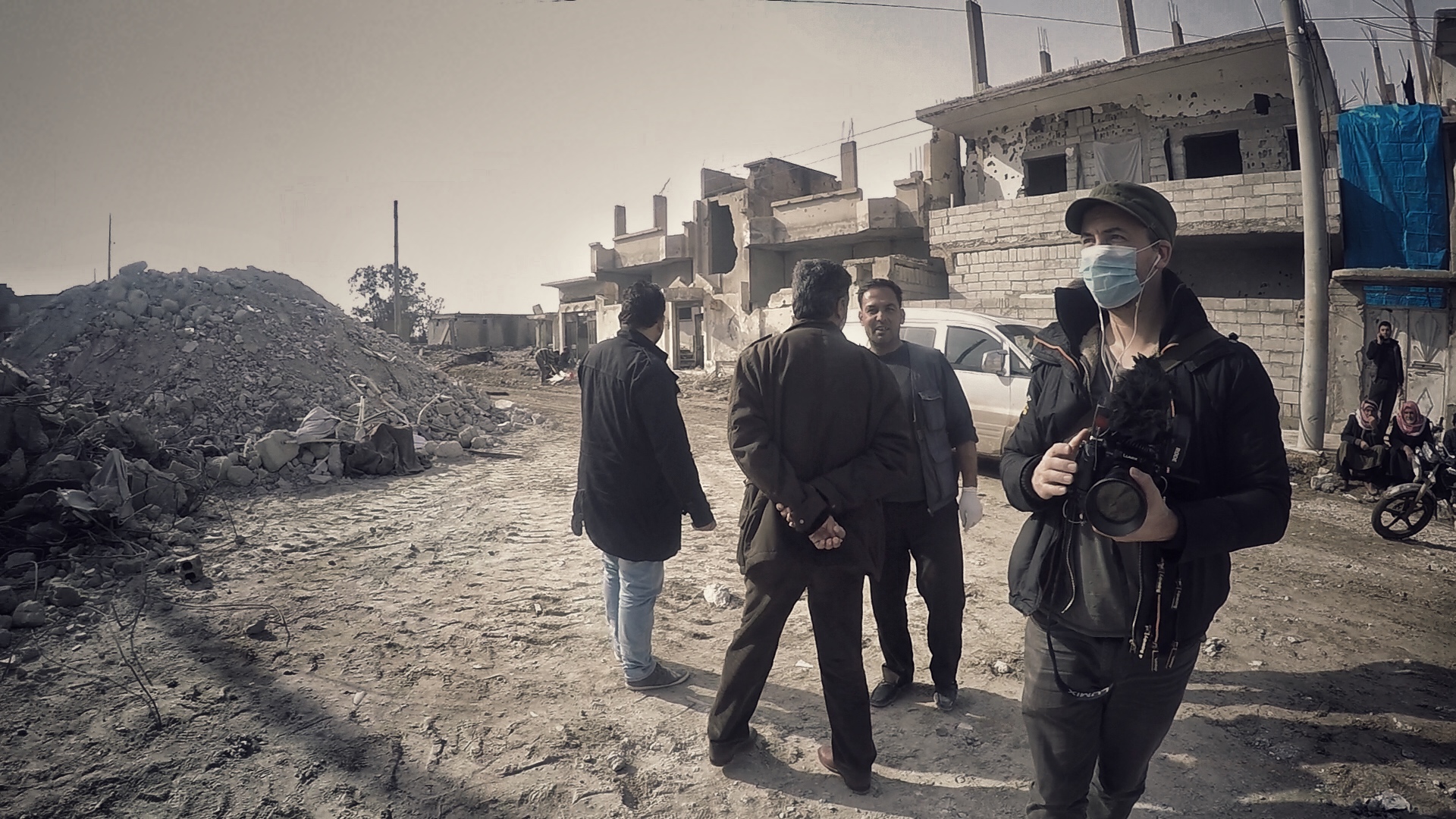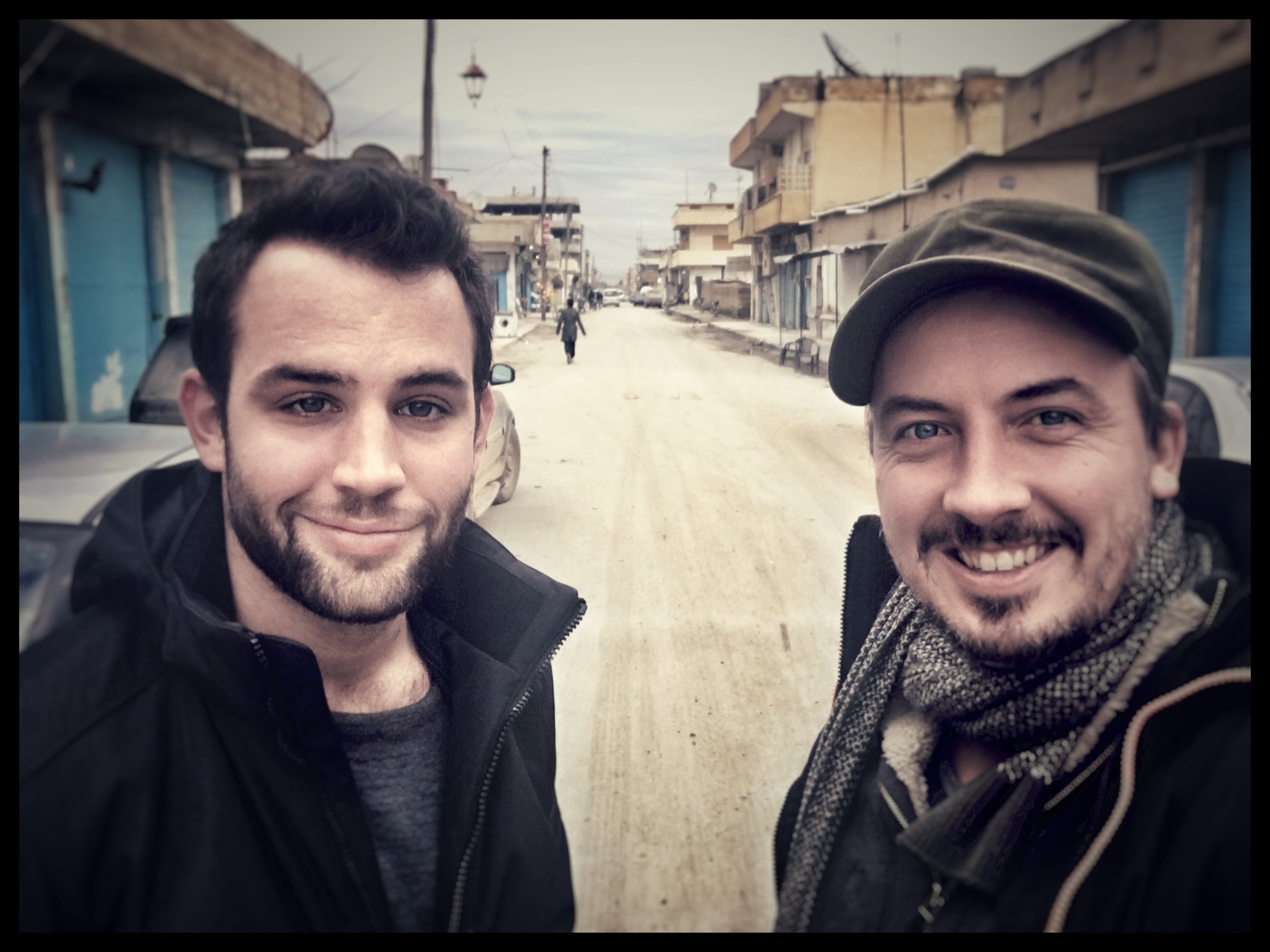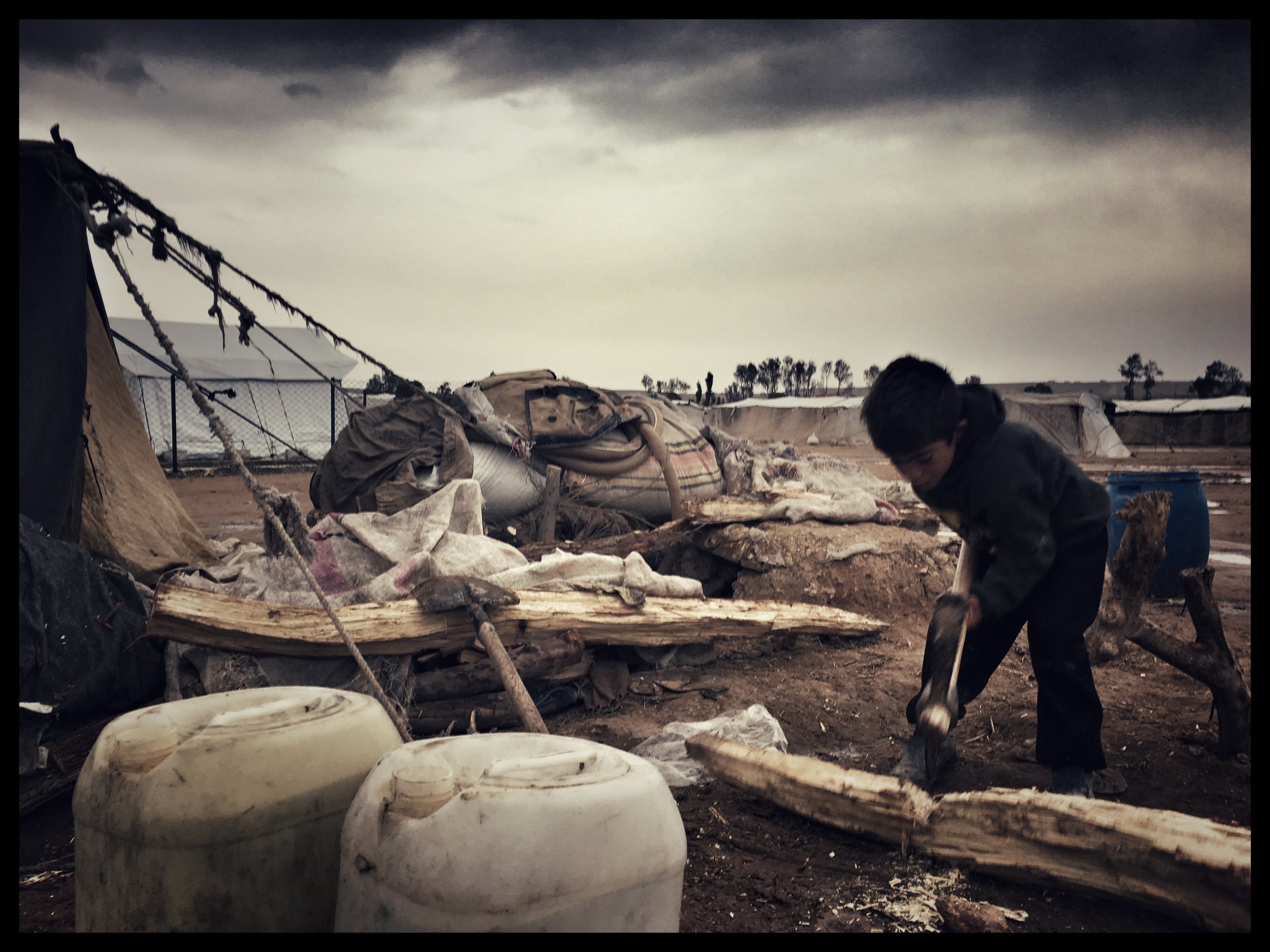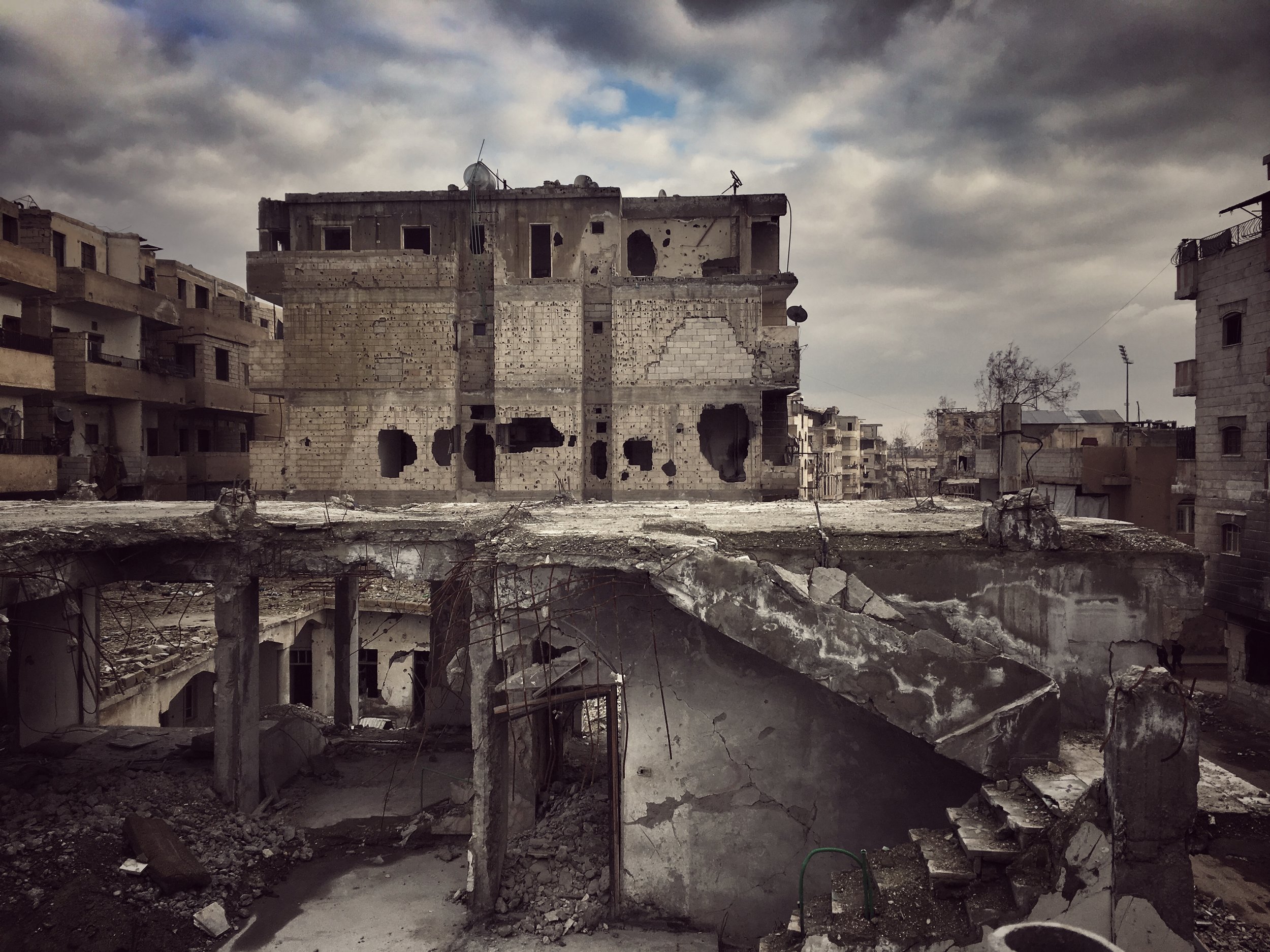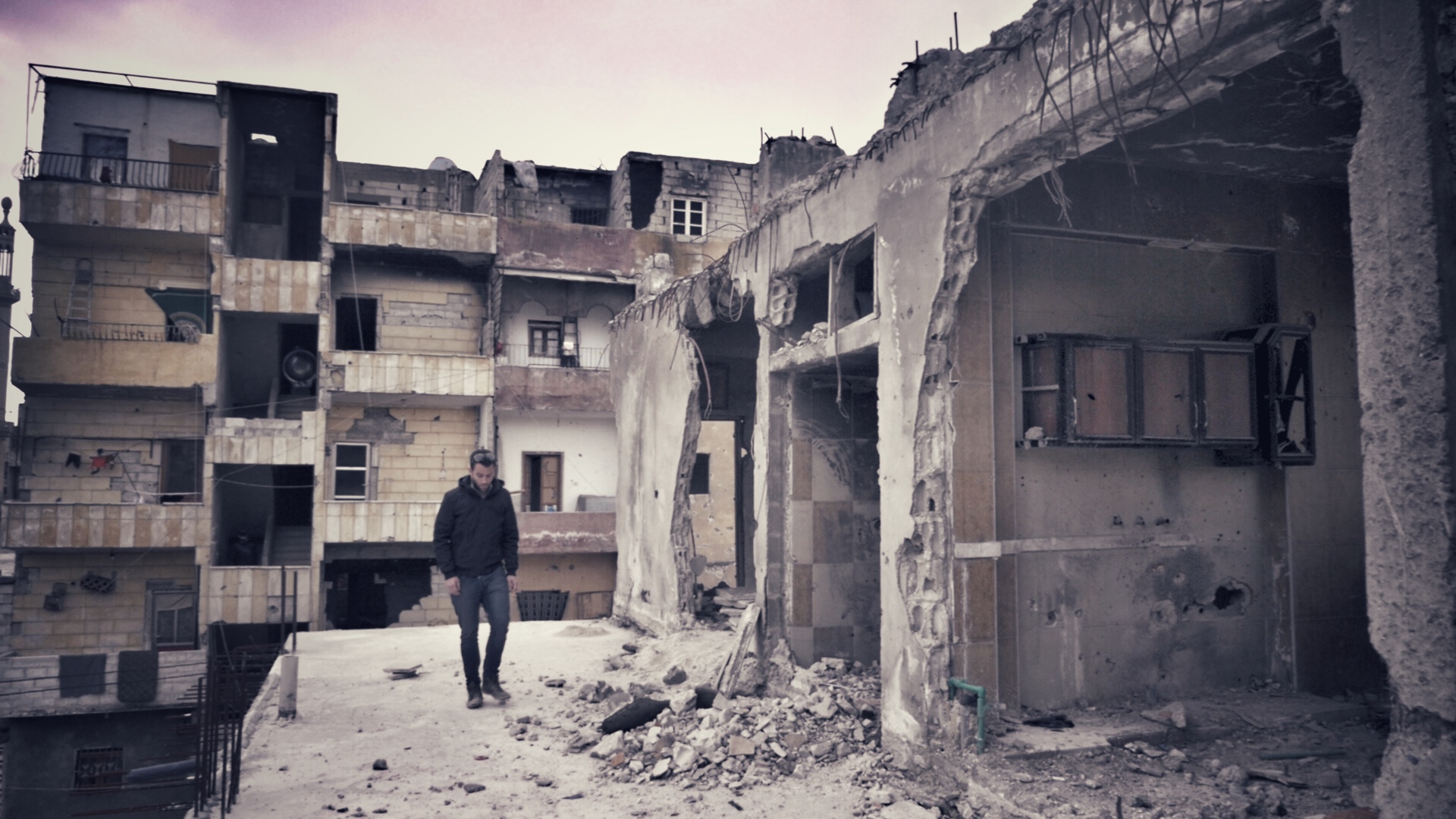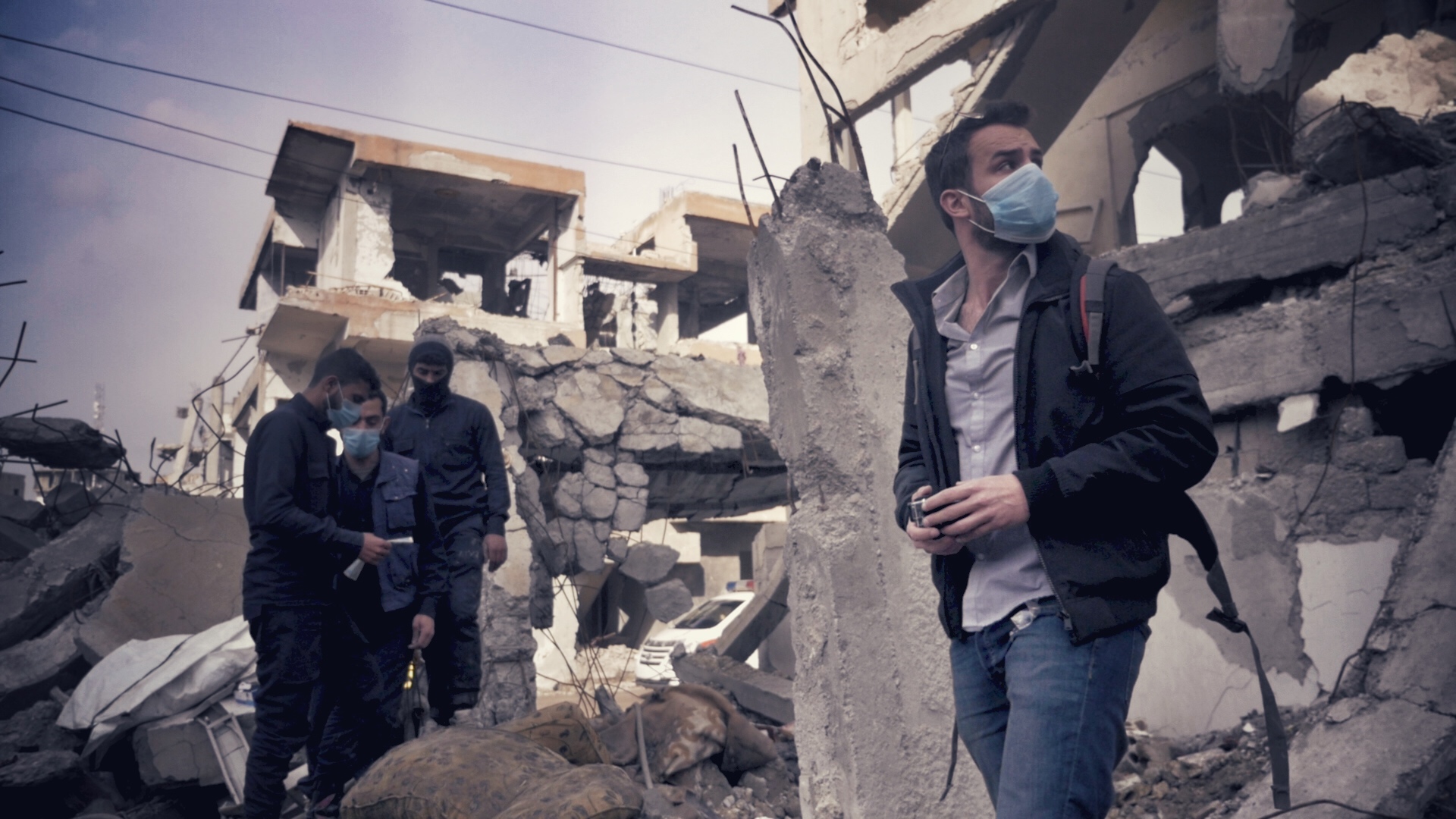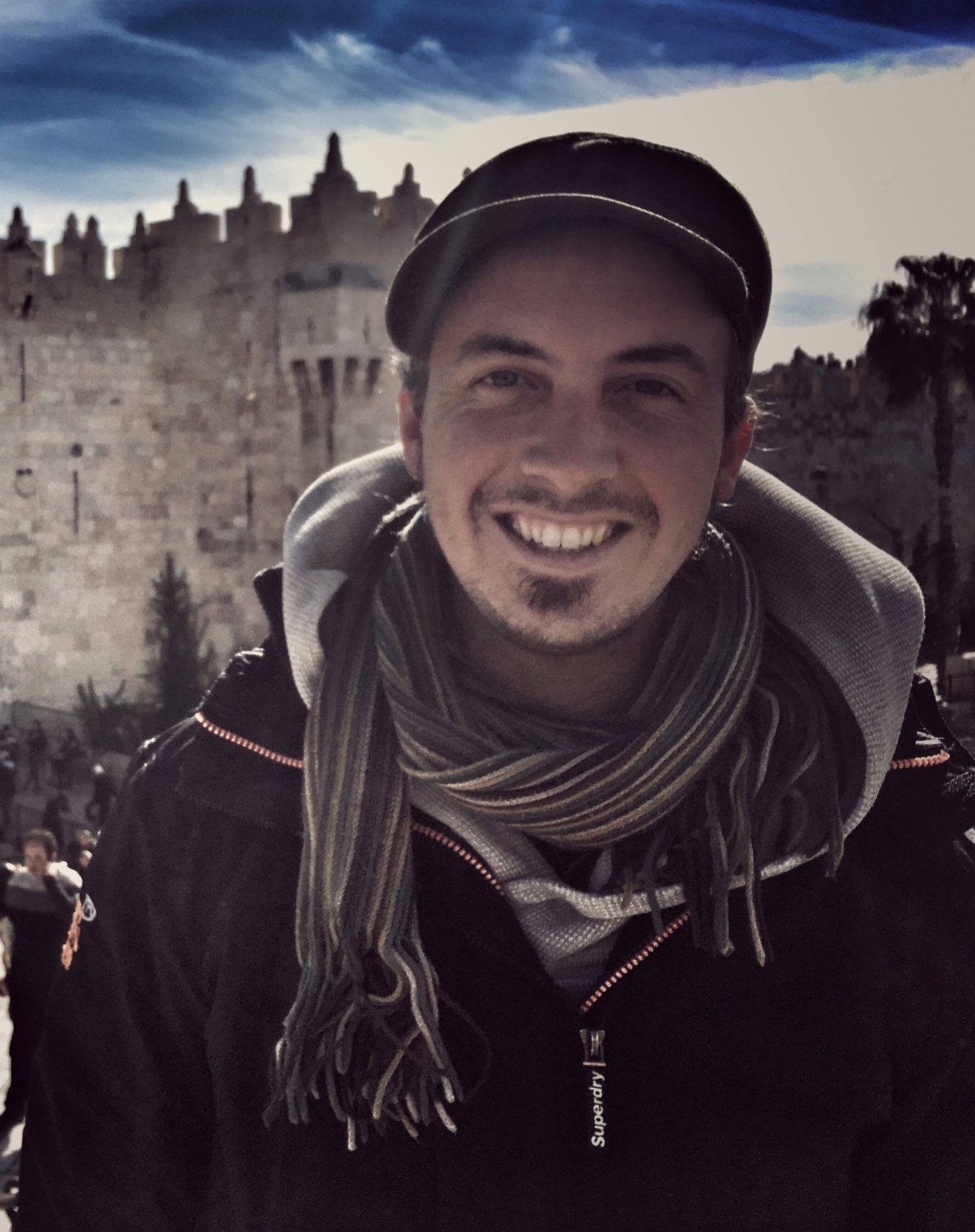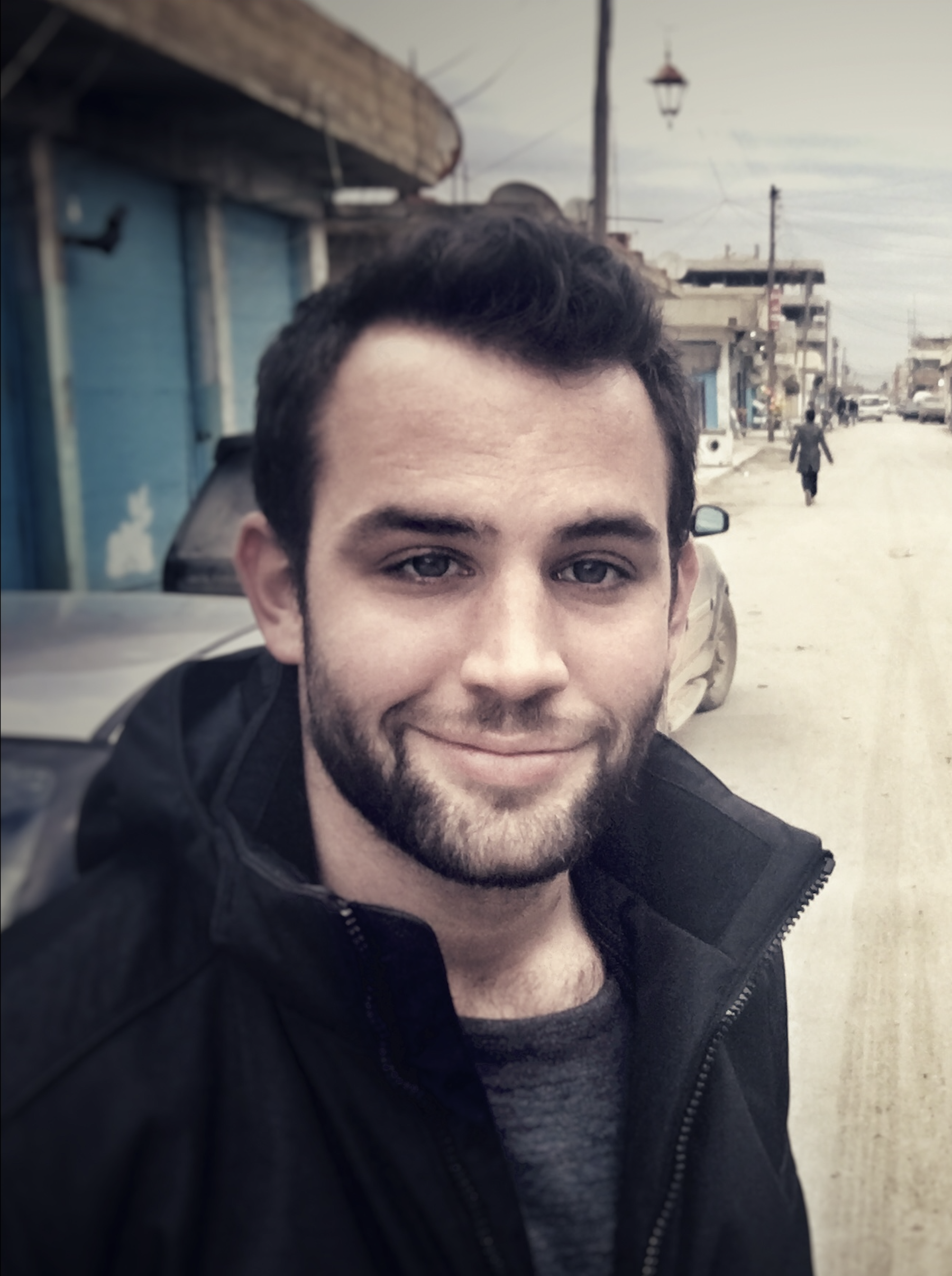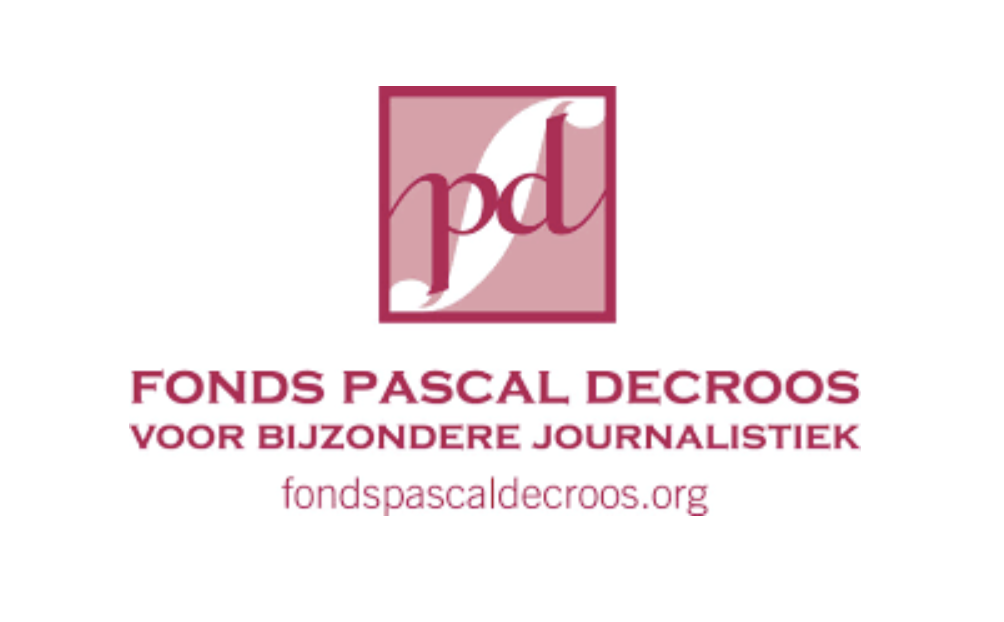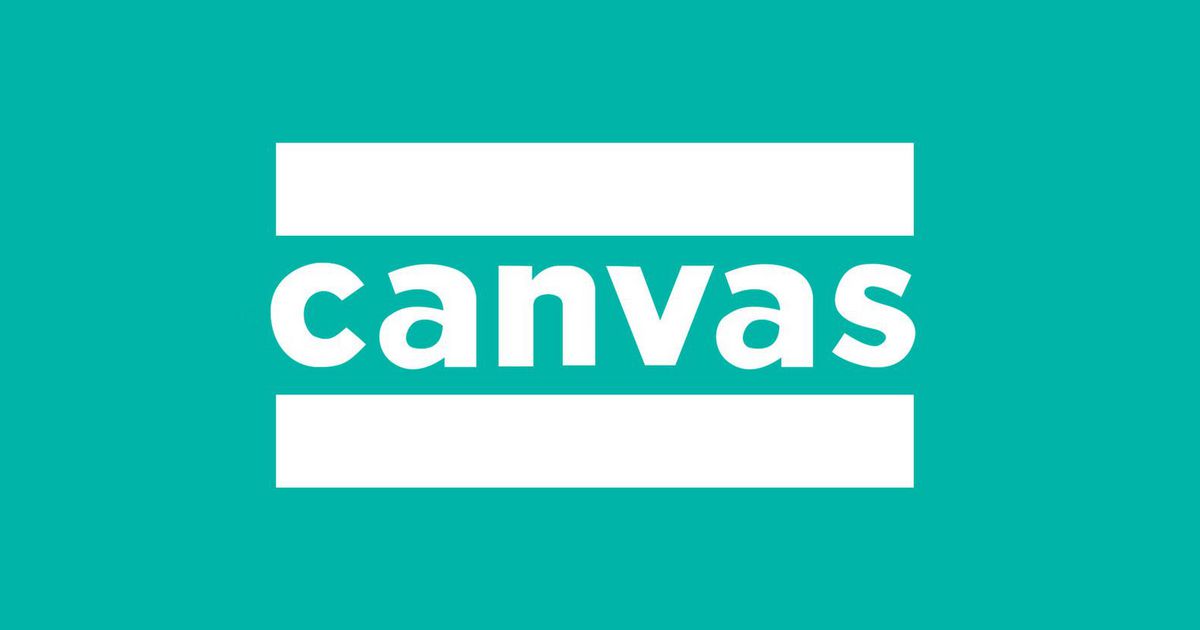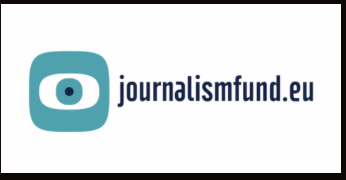REBUILDING RAQQA
Roel Nollet // Willem Staes // 2019 // 26 min
"Bomb after bomb after bomb." Dima is peeling potatoes in the kitchen when rockets are fired at her house. She loses a leg and two fingers. 7 people are killed. All citizens.
Ar-Raqqah, in northern Syria, is proclaimed 'capital of the Caliphate' in 2014 by the jihadist terror movement IS. It is therefore a major symbolic victory against terror when fighters of the SDF - the Syrian Democratic Forces - liberate the city again on October 20, 2017. To pave the way for this Kurdish-Arab alliance, the city is bombed for 4 months by an international coalition led by the US. Belgium is also part of it. According to the Airwars monitoring group, more than 1,400 civilian casualties are involved in the bombing.
Journalist Roel Nollet and Middle Eastern connoisseur Willem Staes travel to Raqqah to record the consequences the bombings had for the population and how big the challenges are for local organizations.
Raqqah is still largely in ruins. 80 percent of the city is destroyed. "There is not a single neighborhood where we have not found bodies," says Yasir, the head of the Raqqah rescue team. He shows us the home of a Belgian Syrian warrior. Of the 16 bodies that they dug up during the week, 5 are jihadis and 11 civilians.
12,000 people are staying in Ain Issa's refugee camp, and more are still coming every day. “I went to Raqqah again, but our house completely collapsed. All eight floors," says Nawras, a plumber with two small children. “We want to go back. But we have no house and there is no work. How can we live there?"
"No one will rebuild Raqqah if there is no political decision," thinks Zozan Alosh. She coordinates humanitarian aid in the region. You are here, but where are your politicians? And where are the European aid organizations?”
Despite the promise of Europe and the international community to rebuild the city after the bombing, it is only the local NGOs and civil society organizations that actually do something.
Totol is such an organization. They give courses in leadership, English lessons and job application training. Their building is the only artifact that is still standing amid the debris. Dima is also in class for the first time. “I have lost my house, my leg and my hand. Who will give me compensation? I will not forget them! Never in my life. And no matter what happens, I will find a job. "
Realised with the support of Journalismfund.eu Fonds Pascal Decroos voor bijzondere journalistiek
TEAM
Partners
"No one will rebuild Raqqah if there is no political decision"
/// ZOZAN ALOSH /// Coordinator of Humanitarian Aid Northeast Syria///
